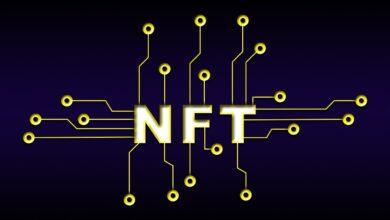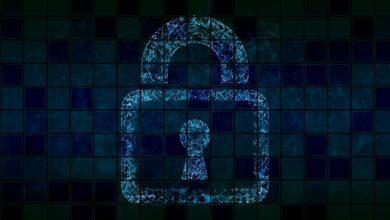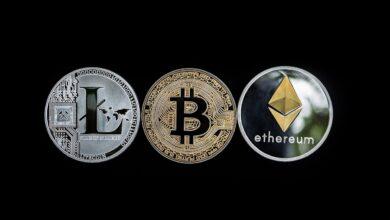Blockchain – Revolutionizing Security Measures Today

In an era where digital threats loom larger than ever, the quest for robust security measures has never been more pressing. The advent of blockchain technology represents a pivotal moment in this ongoing struggle, providing a framework that not only addresses existing vulnerabilities but also offers a profound enhancement to our understanding of secure systems. By decentralizing data storage and employing cryptographic techniques, blockchain stands as a bulwark against the myriad dangers that beset our digital landscape.
The contribution of blockchain to boosting security is multifaceted. Its inherent design promotes transparency and immutability, which are crucial elements in strengthening trust among users and stakeholders. Each transaction recorded on a blockchain is time-stamped and linked to the previous one, creating an unbreakable chain of evidence that is resistant to tampering. This characteristic alone has significant implications for various sectors, including finance, healthcare, and supply chain management, where the need for rigorous security measures is paramount.
Moreover, the impact of blockchain technology extends beyond mere data protection; it fosters an environment conducive to innovation in security protocols. As organizations begin to recognize the benefits of decentralized systems, there is a palpable shift towards adopting these technologies as standard practice. The improvement in security achieved through blockchain is not just about fortifying defenses; it is about reimagining the very architecture of how we conceive and implement security measures in an increasingly interconnected world.
In conclusion, the role of blockchain in enhancing security cannot be overstated. Its unique characteristics not only contribute to strengthening existing frameworks but also pave the way for new approaches that prioritize resilience and accountability. As we continue to explore the vast potential of this technology, it becomes evident that blockchain is more than just a tool; it is a catalyst for a safer digital future.
Understanding Blockchain Technology and Its Contribution to Security Enhancement
In recent years, the emergence of blockchain technology has sparked significant interest across various sectors, primarily due to its potential to enhance security measures. At its core, blockchain is a distributed ledger technology that enables secure and transparent transactions by recording data across multiple nodes in a network. This decentralized nature provides an inherent resilience against tampering and fraud, thereby laying the groundwork for its contribution to strengthening security in numerous applications, from financial services to supply chain management.
The function of blockchain technology in boosting security measures can be attributed to its unique data structure. Each block in the blockchain contains a cryptographic hash of the previous block, creating an immutable chain of records. This design not only fosters transparency but also ensures that any attempt to alter previous transactions would require altering all subsequent blocks, making such endeavors practically infeasible. As a result, organizations adopting blockchain can significantly reduce the risks associated with data breaches and unauthorized access.
Moreover, the impact of blockchain technology on security improvement extends beyond mere data integrity. Smart contracts, a key feature of many blockchain platforms, automate processes through self-executing agreements coded into the blockchain. This function minimizes human error and the potential for manipulation during transactions, further enhancing trust among parties involved. For instance, in real estate transactions, smart contracts can automatically trigger payments upon fulfillment of predefined conditions, thereby reducing the need for intermediaries and decreasing vulnerability to fraud.
Blockchain’s contribution to security is also evident in its capacity for identity verification. Traditional methods often rely on centralized databases that can be susceptible to hacking. In contrast, blockchain decentralizes identity management by allowing individuals to control their own data securely. This capability not only empowers users but also significantly mitigates risks associated with identity theft. Companies leveraging this aspect of blockchain are better equipped to protect sensitive information while enhancing user trust.
In addition to these advantages, the ongoing development of blockchain protocols continues to refine security features. Innovations such as zero-knowledge proofs allow one party to prove possession of certain information without revealing it, further pushing the boundaries of privacy and security within transactions. The adaptability of blockchain technology means that it can evolve alongside emerging threats, ensuring that its role in bolstering security measures remains relevant and effective.
In conclusion, understanding blockchain technology reveals its multifaceted contribution to strengthening security across various domains. Its decentralized architecture, combined with smart contracts and advanced identity verification mechanisms, positions it as a formidable tool for enhancing data integrity and trustworthiness. As industries increasingly recognize the importance of robust security measures in today’s digital landscape, the impact of blockchain technology is poised to become even more pronounced, unlocking new possibilities for secure interactions in an ever-evolving world.
How Blockchain Enhances Security
In the modern landscape of information technology, the significance of data integrity cannot be overstated. Blockchain technology plays a pivotal role in ensuring this integrity through its decentralized and immutable structure. The function of blockchain in this context is to create a distributed ledger that records transactions across numerous nodes, making it virtually impossible for any single entity to alter or manipulate the data without consensus from the network. This inherent feature of transparency and traceability serves as a robust foundation for bolstering security measures across various sectors, from finance to healthcare.
The enhancement of security through blockchain technology is not merely theoretical; it has practical applications that demonstrate its efficacy. For instance, in supply chain management, the integration of blockchain allows all participants to verify the authenticity of goods at each stage of distribution. This drastically reduces the risk of fraud and counterfeit products infiltrating the market. By ensuring that every transaction is recorded and cannot be altered retroactively, businesses can significantly improve their trustworthiness and operational efficiency.
Furthermore, the impact of blockchain technology on security improvement extends beyond individual organizations to entire industries. Financial institutions have begun adopting blockchain to secure transactions and reduce the costs associated with fraud detection. By utilizing cryptographic techniques inherent in blockchain, these institutions can enhance their security frameworks, ultimately leading to a decrease in fraudulent activities and a more resilient financial ecosystem. This shift not only protects consumers but also fortifies the confidence investors place in digital assets.
The contribution of blockchain to strengthening security measures is particularly evident in the realm of identity verification. Traditional methods rely heavily on centralized databases, which are vulnerable to breaches and unauthorized access. In contrast, blockchain offers a decentralized solution where users can control their own identity data without relying on third parties. This self-sovereign identity model enhances personal privacy while simultaneously providing a secure method for verification when needed. The benefits of such an approach are manifold, as it empowers individuals while reducing the risks associated with centralized data storage.
Moreover, the function of blockchain technology in enhancing security is complemented by its adaptability across various applications. From smart contracts that automatically execute agreements based on predefined conditions to decentralized finance (DeFi) platforms that eliminate intermediaries, blockchain fosters innovation that inherently prioritizes security. Each new application built on this framework contributes to an evolving landscape where security measures are continuously improved upon and adapted to meet emerging threats.
In conclusion, as we navigate an era increasingly defined by digital interactions and data exchange, the role of blockchain technology in boosting security cannot be overlooked. Its capacity for ensuring data integrity, enhancing operational efficiencies, and fostering trust among stakeholders marks a significant advancement in our approach to security challenges. The ongoing exploration and implementation of blockchain solutions promise not only immediate benefits but also long-term improvements in how we secure our digital lives against an ever-evolving array of threats.
Blockchain and Cybersecurity Solutions
The function of blockchain technology in enhancing cybersecurity measures is increasingly recognized as a pivotal element in the digital landscape. By providing a decentralized and immutable ledger, blockchain significantly reduces the risk of data tampering and unauthorized access. Each transaction is recorded in a manner that makes it nearly impossible to alter without detection, which stands in stark contrast to traditional centralized systems susceptible to single points of failure. This inherent characteristic of blockchain serves as a robust foundation for various cybersecurity solutions, paving the way for more secure digital interactions.
The impact of blockchain technology on security improvement can be seen across multiple industries, from finance to healthcare. For instance, in the financial sector, blockchain has transformed the way transactions are conducted, ensuring that each one is traceable and verifiable. This not only enhances trust among participants but also mitigates fraud by allowing real-time auditing capabilities. In healthcare, patient records secured through blockchain ensure confidentiality and integrity, allowing data to be shared securely among authorized parties while preventing breaches that could compromise sensitive information.
Moreover, the contribution of blockchain to strengthening security measures extends beyond mere transaction verification. Smart contracts, a key feature of blockchain technology, automate processes while enforcing compliance without human intervention. This automation minimizes the likelihood of human error and malicious activities, thus reinforcing security protocols within organizations. The transparency provided by smart contracts also enables better monitoring and accountability, creating an environment where security measures are continuously evaluated and improved.
In summary, the role of blockchain technology in boosting security cannot be overstated. Its unique attributes offer unparalleled enhancements to existing cybersecurity frameworks, addressing vulnerabilities that have long plagued digital systems. As industries continue to explore the potential of blockchain, it becomes evident that its integration will play a crucial role in shaping the future of secure transactions and data management. The ongoing evolution of this technology promises not only improvement but also a profound transformation in how we perceive and implement security measures across the globe.
The Future of Security with Blockchain Technology
As we stand at the precipice of a new digital age, the role of blockchain technology in enhancing security measures has never been more pertinent. This decentralized ledger system, often celebrated for its transparency and immutability, goes beyond merely serving as a foundation for cryptocurrencies; it is a powerful tool that holds the potential to revolutionize the way we perceive and implement security across various sectors. The function of blockchain in boosting security is multifaceted, providing not only enhanced protection against fraud and cyber threats but also fostering trust in the digital ecosystem.
The contribution of blockchain to strengthening security cannot be overstated. With each transaction recorded on an immutable ledger, the potential for tampering or unauthorized access diminishes significantly. This creates a robust framework where data integrity is paramount. Furthermore, the impact of blockchain technology on security improvement is evident in diverse applications, from supply chain management to identity verification, showcasing its versatility and effectiveness in addressing contemporary security challenges.
Conclusion
In summary, the advancement of blockchain technology marks a significant turning point in our approach to security. Its inherent qualities are poised to enhance not just our immediate security measures but also the broader infrastructure upon which our digital interactions depend. As organizations and individuals alike seek new solutions to age-old problems, the enhancement brought by blockchain is not merely a temporary fix; it represents a fundamental shift toward more secure systems.
- Function: Blockchain serves as a decentralized mechanism that reduces reliance on central authorities.
- Boosting Security: The cryptographic techniques employed by blockchain ensure data privacy and integrity.
- Contribution to Strengthening: By enabling transparent transactions, blockchain fosters accountability among participants.
- Impact on Improvement: The ability to audit transactions in real-time enhances oversight and compliance.
As we look ahead, it is imperative for stakeholders to recognize and embrace this transformative technology. The future of security rests not only on implementing advanced measures but also on understanding and leveraging the unique advantages that blockchain brings to the table. Together, we can forge a safer digital landscape where trust is built into every transaction and where security measures evolve in tandem with technological innovation.





